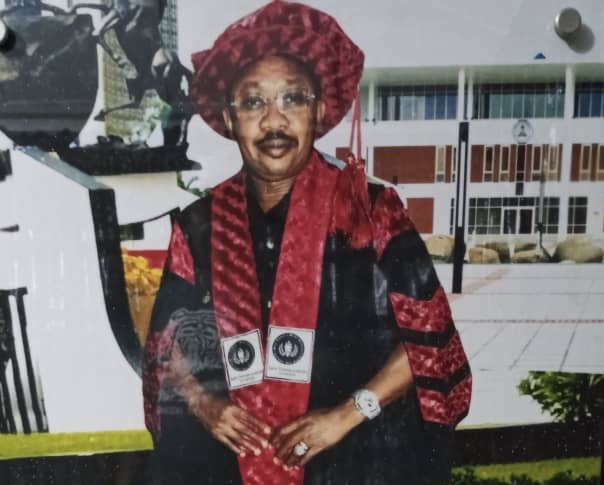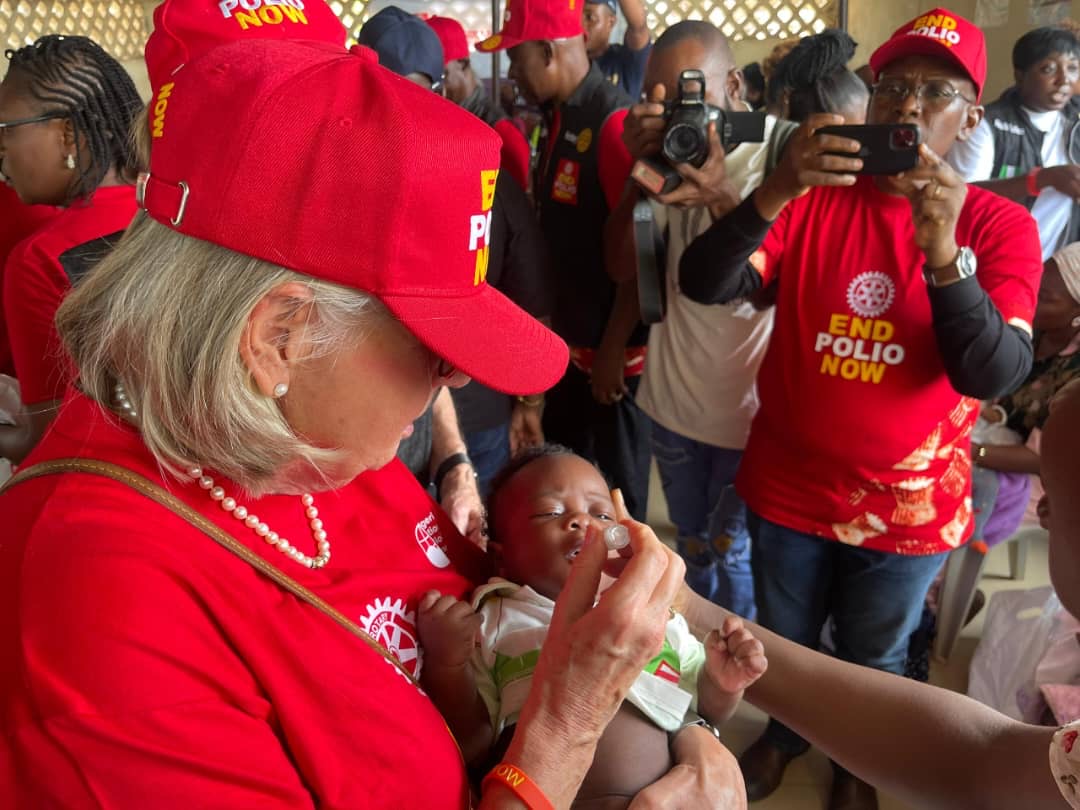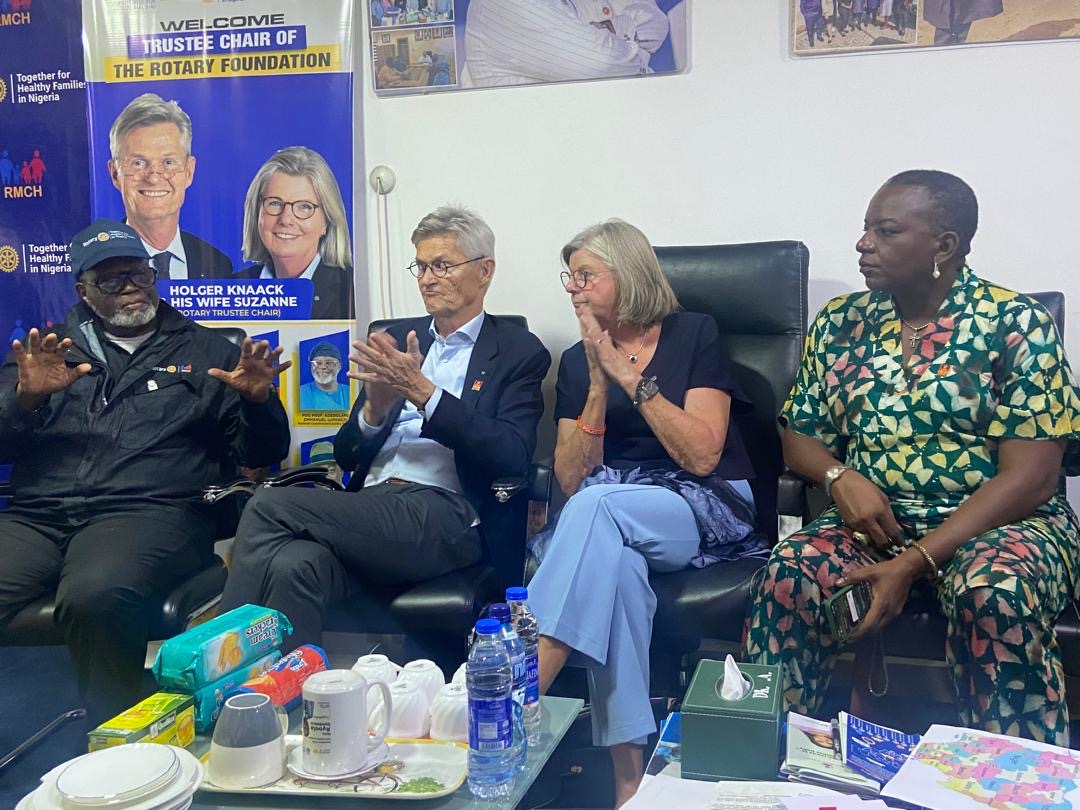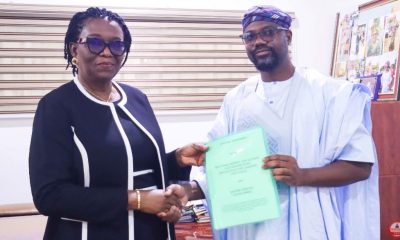Health
Gender-Based Violence: A Scourge On Humanity And Breaking The Silence

By Professor Edwin Igoche
Gender-Based Violence (GBV) is an umbrella term for harmful acts of abuse perpetrated against a person’s will and rooted in a system of unequal power between women and men. It is a pervasive and insidious issues that affect individuals of all genders, ages and backgrounds worldwide. It is a grave violation of human rights causing physical, emotional and psychological harm to millions of people every year.
The United Nation (UN) defined violence against women as an act of gender-based violence that result in or is likely to result in physical or psychological harm or suffering to women including threat of such act, coercion or arbitrary deprivation of liberty whether occurring in public or in private life. It is a complex problem that requires a multifaceted approach to prevention, support and justice.
Gender-based violence can manifest in a variety of ways, which include as follows: –
• Physical violence: such as assault, domestic violence, female genital mutilation and slavery.
• Emotional and psychological violence: such as verbal abuse, confinement, harassment and stalking.
• Sexual violence including rape, sexual assault and exploitation.
• Economic violence includes financial control and deprivation
• Cultural and social violence which include denial of resources, forced marriages and harassment.
Research has found that adolescent girls living in displacement are particularly at risk. Gender-based violence can happen to anyone. However, it disproportionately affects women and girls. This is the most common form of violence against women and girls in humanitarian context.
A research and accurate statistic that Gender-based violence are prevalent in Nigeria. In 2020, 7,349 incidents of GBV were reported in Nigeria.
• 58.2% of the reported cases were from non-intimate perpetrators.
• Sexual and physical violence accounted for 72.3% reported incidents
• One in three women that experience physical, sexual or intimate-partner violence are victims of trafficking, or are subject to violent social norms.
• Gender-based violence is a human rights violation with significant social and economic repercussion for individuals and society.
Causes of Gender-based violence
There are variety of causes to this kind of violence which include:-
1. Poverty: When families are pushed into poverty, harmful practices like child marriage increases.
2. Gender inequality and stereotypes.
3. Break down of social services: A collapse of social service such as community structure and rule of law means women can fund themselves without social support and protection system in violent situations. It can also result in women and girls traveling long distance in search of food and water which increase risk of sexual harassment and assault.
4. Conflict and war: Rising numbers of conflict globally are driving an increase in conflict related sexual violence without the rule of law. This is often carried out with impunity. Armed forces may use rape as a weapon of war and other form of conflict related sexual violence (CRSV) such as sexual slavery, force prostitution, forced pregnancy, forced abortion, forced sterilization and forced marriage.
5. Stress in the home: Intimidate partner violence (IPV) is the most common form of violence women experience in humanitarian setting. IPV and child maltreatment and abuse occur more frequently when families experience an inability to meet their basic needs and consistence income. Other causes of GBV include: power imbalance, economic dependence and lack of education and awareness among others.
The consequences and impact of GBV can range from physical harm to long-term emotional distress and even to fatalities. Rape and sexual assault for instance, can result in unwanted pregnancies, complications during pregnancy and birth, and sexually transmitted infections including (HIV). Social and economic fallout from GBV can also lead to loss of livelihood and increase gender inequality in the long term.
Reporting and seeking service for GBV victims can lead to further threat of violence, social stigma and ostracization, if not properly handled. It is also a key barrier to women and girls accessing other lifesaving services, such as food, shelter and healthcare. Others include, limited access to education and opportunities, economic dependence and poverty, mental health issue like anxiety and depression.
The impact of GBV has a long-lasting effect on individuals, survivors and their families and society at large among which are;
• Perpetration of gender
• Stereotypes and discrimination
• Normalization of violence and abuse
• Increased healthcare costs and burden on services
• Reduce economic productivity and development
• Intergenerational trauma and cycle of violence
The world body, international communities, notable and renowned scholars, had raised a unanimous and conscientious voice in the total and stark condemnation of GBV in their various quotes, among which are;
1. Antonio Guterres UN secretary-General “The persistence of genderbased violence is a stark reminder of the deep-seated gender inequalities that persist in our societies”.
2. Professor Rashida Manjoo, UN special Rapporteur on violence against women: “Gender-based violence is a reflection of the way in which our society have failed to value and respect the lives and dignity of women and girls”.
3. Dr Denis Mukwege, a Nobel Peace Prize laureate said: “Genderbased violence is not just a women’s issue. It’s a crisis that requires a collective response”.
4. Dr Tedros Adhanom Ghebreyesus, the Director General of World Health Organization quoted that “Violence against women is a violation of human rights, a public health epidemic, and a barrier to gender inequality”.
5. Plumzile Mlambo–Ngcuka, the United Nation Women Executive Director states that “Gender-based violence is a pandemic that affects one in three women worldwide, regardless of their age, background, or circumstances”
All the above quotes, highlight the severity and impact of GBV which should not be taken with levity, emphasizing the need for collective effort and action to address this global issue by breaking the silence with the following recommendation highlighted thus:
• Include women in decision-making at leadership level.
• Support local women-led and women’s right organization
• Believe and support survivors
• Provide access to resources and services, like counseling, legal aid healthcare.
• Create safe access for disclosure.
• Challenge harmful gender norms and stereotypes.
• Engage men in gender equality effort as male allies.
• Advocate for policies and laws protecting survivors.
I will conclude by saying that, GBV is a pervasive issue that requires collective effort, action and commitment. Understanding its complexity, supporting survivors, and challenging harmful norms, we can create a society that values gender equality, justice and human rights for all, because an injustice to one, is an injustice to all and a threat to justice anywhere is a threat to justice everywhere.
Health
Rotary set to eradicate polio in the world—Knaack

From Adeko Ukpa, Abuja
The Rotary Foundation, on Wednesday, reaffirmed its commitment to sustaining Nigeria’s polio-free status and reducing maternal and child mortality across the country, describing the efforts of Nigerian Rotarians and health workers as vital to global health.
Speaking during a Community Dialogue and Joint Partners Health Outreach organised by Rotary International in Gwarinpa Village, Abuja, the Chairman of the Rotary Foundation Board, Holger Knaack, said although Africa was certified polio-free five years ago, continued vaccination remains necessary until the disease is completely eradicated worldwide.
Knaack said: “Rotary’s goal is to eradicate polio, to kick it out of the world.
“As long as there are single cases in Pakistan and Afghanistan, we must continue vaccinating children.
“Even though Africa has been free of wild polio-virus for five years, our children are not safe until every child everywhere is protected.”
He emphasised that every newborn in Nigeria must continue to receive polio immunisation to ensure the virus never resurfaces.

The wife of the Chairman of The Rotary Foundation, Suzanne immunizing a child against polio at AMAC Health Centre, Lugbe in Abuja.
Knaack, who is also visiting other countries, said Nigeria remains central to Rotary International’s global health programmes because of its scale and impact.
“Three of our major projects are happening here in Nigeria – the polio eradication campaign, the ‘Together for Healthy Families’ initiative aimed at ensuring safe childbirth and reducing maternal and child deaths, and the Rotary Healthy Community Challenge, which targets malaria, diarrhoea and pneumonia – the three biggest killers of children,” he said.
He commended Nigerian philanthropist Sir Emeka Offor for his $5 million donation to Rotary’s maternal and child health programmes, describing the support as “outstanding.”
“I want to thank all Nigerians and all Rotarians for fighting against maternal and child deaths.
“What happens here shows donors in Europe and the United States that their contributions are making real impact. It is an investment in global health,” Knaack said.
Also speaking, Trustee of the Rotary Foundation, Dr. Ijeoma Pearl Okoro, said Rotary’s maternal and child health project has already reduced mortality by 28 percent in three years across four pilot states of Ekiti, Nasarawa, Gombe, and the FCT.
“Our goal is that no mother or child should die during childbirth.
“We are expanding the programme to 10 states next year, thanks to the support from the Sir Emeka Offor Foundation,” she said.
Rotarian Okoro noted that Rotary’s interventions begin before conception and continue until a child turns five years old, adding that collaboration with traditional rulers, health workers, and community members has been key to success.
“Community cooperation is everything. You can see the health workers, the mothers, and traditional leaders participating, it’s because they’ve seen results,” she explained.
She urged the media and government to intensify awareness campaigns on immunisation, saying communication and community engagement remain the most powerful tools against polio.
“Even though wild polio-virus has been eradicated from Nigeria, it still exists in Pakistan and Afghanistan and because Nigerians travel everywhere, polio anywhere is polio everywhere. We must not relax until it’s wiped off the face of the earth,” she said.
Also, the Village Head of Gwarinpa Village, Alhaji Umar Bayaro emphasised the importance of polio immunisation to the health of the Community.
He pledged to continue to work with the Rotary International to sustain their interventions in the community.
He said: “My hope is to continue encouraging my people to visit the Primary Health Care Centre.
“Taking the polio vaccine is essential for preventing certain illnesses in our society, and this goal can only be achieved when community leaders are actively involved.
“I am fully committed, alongside other leaders here today, to ensuring that our people participate and benefit.
“I will always support any organisation that brings development projects to my community. I will stand with them to ensure success.
“I also want to urge the Rotary Club not to forget to come back, sustainability is my priority.
“We will continue to sustain whatever has been put in place in this community, and that is why you can already see the positive changes happening here.”
Rotary International has been at the forefront of the global polio eradication effort for over three decades, partnering with the World Health Organization (WHO), UNICEF, and the Bill & Melinda Gates Foundation.
Health
Rotary Foundation expands $5m Maternal, Child Health Programme in Nigeria

From Adeko Ukpa, Abuja
The Rotary Foundation on Monday reaffirmed its commitment to improving maternal and child health in Nigeria through the Together for Healthy Families in Nigeria programme.
Speaking after an interactive session with the Rotary action group for Reproductive, Maternal and Child Health (Rotary-RMCH)
regarding the ongoing “Together for Healthy Families in Nigeria” programs of scale in Abuja, the Chair of the Rotary Foundation, Holger Knaack, who was accompanied by his wife Suzanne, described the programme as one of its most impactful initiatives on the African continent.
He expressed delight at the progress recorded under the programme, which has significantly reduced maternal and child deaths in participating communities.
“What we are seeing here is the result of more than 25 years of hard work and collaboration among Rotarians, the Rotary Foundation, volunteers, and government health officials,” he said.
“Together, we have achieved a significant reduction in maternal and child mortality. That is the true impact of partnership,” he added.
He explained that Rotary’s approach is to focus on large-scale, measurable projects that deliver lasting change.
“Our goal is always impact. It’s not just about doing good, but about doing the right thing and being able to measure it. Bigger projects have greater, measurable results,” he said.

Caption: L-R: The National Coordinator/Country Director of the Together for Healthy Families in Nigeria programme, Prof. Adedolapo Emmanuel Lufadeju, Rotary Foundation Chairman and Past Rotary International President, Holger Knaack,
his wife, Suzanne and Rotary Foundation Trustee, Ijeoma Pearl Okoro, at the maternal and reproductive health review meeting by The RotaryFoundation in Abuja on Monday.
The Together for Healthy Families in Nigeria programme, he noted, is a $2 million initiative that has attracted further support and collaboration.
“Through partnerships with other countries such as Germany, we have raised about $2.8 million, bringing the total investment to nearly $5 million.
“We are also proud that the Sir Emeka Offor Foundation has pledged another $5 million over the next few years to sustain this success,” he said.
Also speaking, Trustee of the Rotary Foundation, Ijeoma Pearl Okoro, described it as a milestone for Nigeria, being only the second Programme of Scale approved by the Rotary Foundation globally.
“I’m happy it came to Nigeria, and that we hit the ground running. We’re already recording successes in maternal and child care,” she said.
“Most importantly, the programme has attracted a scaling partner, which will help us expand beyond the initial four pilot locations.
“The next phase has been mapped out, and we’re ready to extend to other states,” Okoro added.
The National Coordinator/Country Director of the Together for Healthy Families in Nigeria programme, Prof. Adedolapo Emmanuel Lufadeju, in his presentation, said that the Together for Healthy Families in Nigeria programme of Scale (PoS) is an initiative through which Rotary members show their commitment to improving maternal and infant health by providing mothers and newborns with targeted healthcare.
He said the programme has helped in “improving the systemic access to life saving services which will have an immediate and enduring impact on not just mothers but also the wider community by reducing maternal and neonatal mortality in Nigeria, hence the theme.”
“The overall objective of the programme is to scale-down maternal and neonatal mortality by 25%,” he added.
The programme, according to him, commenced implementation in four locations in November 2022.
He listed the locations to include, FCT (Abuja Municipal Area Council), Nasarawa (Akwanga and Lafia LGAs), Gombe (Gombe and Yamaltu Deba LGAs) and Ekiti states (Ado-Ekiti and Ijero LGAs) in 49 facilities in total.
“Owing to the success recorded, as at July 2025, the programme has expanded to 103 facilities across the four locations,” he said.
END
Health
Rotary International spends $3bn to fight polio globally

From Adeko Ukpa
Rotary International has spent $3 billion in the fight against poliovirus globally, Michael McGovern, Chair of the Rotary International Polio Plus Committee, has revealed.
The Rotary International Chief, who reaffirmed the organization’s commitment to eradicating polio in Nigeria, urged the Nigerian government and other stakeholders to remain steadfast in prioritizing polio eradication efforts.
Speaking on Tuesday at the Masaka Primary Health Center in Nasarawa State, where he participated in a symbolic polio immunization exercise, McGovern emphasized the importance of continued efforts to protect children from the devastating effects of polio.
“Over the years, we have invested nearly $3 billion. It’s a lot of money, but we are happy to do it because we see the benefit, 20 million children who have not been disabled.
“The biggest impression that everyone has to have here is to see the beautiful children and recognize the importance of their health.
“Ensuring they receive necessary immunizations is vital for them to live healthy lives,” he said.
Despite significant progress, he noted that Nigeria remains at risk, with cases of vaccine-derived poliovirus still being recorded, saying, “While the cases aren’t huge in number, they are crucially important in terms of eradicating this sad, sad disease once and for all”.
He stressed the importance of routine immunization to prevent a resurgence, saying, “The most responsible thing is for everyone to support all routine immunizations, for measles, polio, and many other diseases.
“Immunization strengthens the immune system and protects children from multiple illnesses, not just polio”.
McGovern, however, acknowledged the tireless work of frontline health workers, who venture into difficult terrains to ensure that children receive vaccines.
“We particularly want to acknowledge the frontline workers who go out into the heat, into so many places, and the mothers who make sure their children are immunized.
“It’s life-saving. It makes a difference,” he noted.
McGovern also recognized the contributions of international partners such as the World Health Organization (WHO), United Nations Children’s Fund (UNICEF), Gavi the Vaccine Alliance, and the Bill & Melinda Gates Foundation, but emphasized the critical role of local communities, noting, “In the end, it’s the local communities that make the difference, ensuring children are immunized and have a healthy future”.
He also underscored the importance of health surveillance, saying, “Laboratories, parents, and local health authorities must remain vigilant. If a child shows signs of illness, parents should take them to health facilities to find out what is going on”.
On Nigeria’s broader immunization efforts, he noted that all countries, including his home country, the United States, could do more, “Nigeria is not unlike the rest of the world. Every country can do more than it is doing now,” he stressed.
However, McGovern reiterated that while polio eradication remains a priority, Rotary International is also committed to supporting broader child and maternal health initiatives.
“The next big project will be determined by Rotarians worldwide. We don’t prescribe top-down solutions; we listen to the needs of local communities,” he said.
Carol Pandak, Director of the Polio Plus Program at Rotary International, echoed McGovern’s sentiments, urging Nigerian communities to prioritize vaccinations.
“I’ve been very impressed with the mothers, children, and the dedication of local health workers.
“The most important thing parents can do is immunize their children, not just against polio but against all vaccine-preventable diseases,” she said.
-

 Opinion9 months ago
Opinion9 months agoAnioma State: A Necessary Proposal Rooted in Strategic Advantage
-

 Business & Economy1 year ago
Business & Economy1 year agoNASENI, Qietur partner to build 3000 Housing Units for Staff
-

 Business2 months ago
Business2 months agoLithium boom has reshaped Nasarawa’s economy, says Prof Haruna
-

 Law1 year ago
Law1 year agoHuman Right and Law Enforcement in Nigeria: A Critical Analysis
-

 Education3 months ago
Education3 months agoNABTEB Registrar advises automotive, locomotive Engineers to do more to diversify Nigerian economy
-

 Education6 months ago
Education6 months agoTVET will change Nigeria for good, says NABTEB Registrar
-

 Opinion3 months ago
Opinion3 months agoEngr. Kawu: A Heroic Homecoming for a Man of the People
-

 Education6 months ago
Education6 months agoTVET: FG conducts entrance exam into FTCs for 30,000 students



